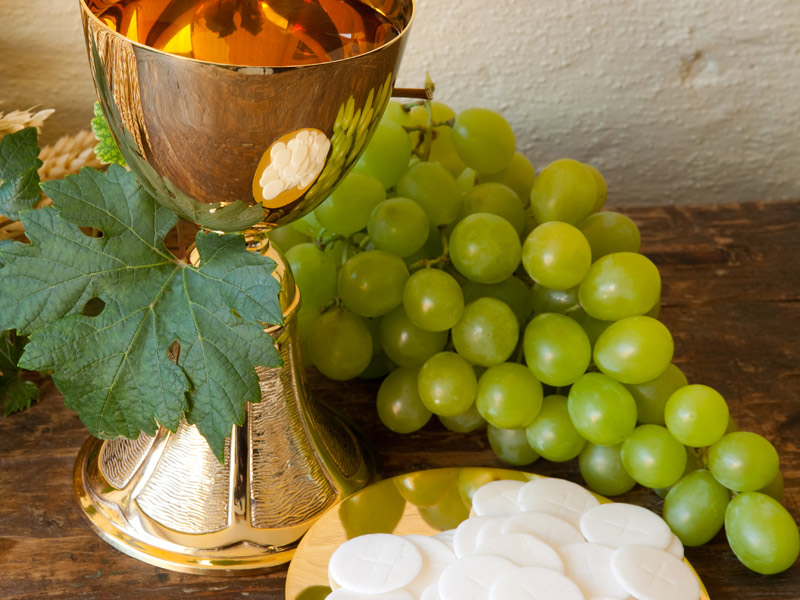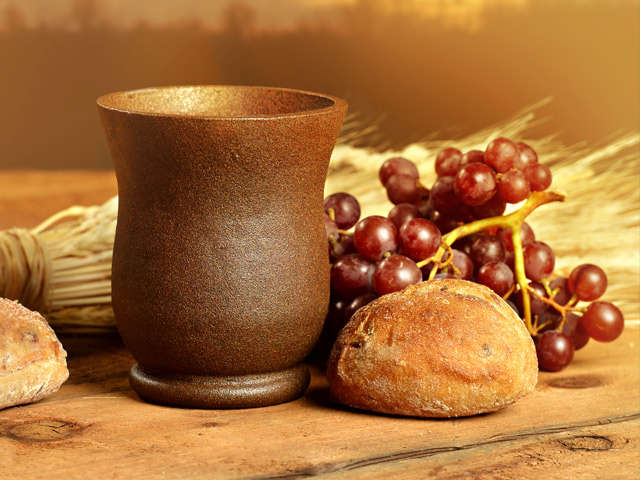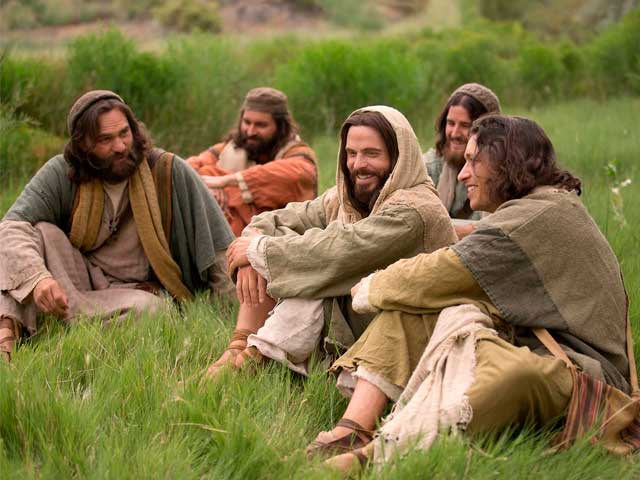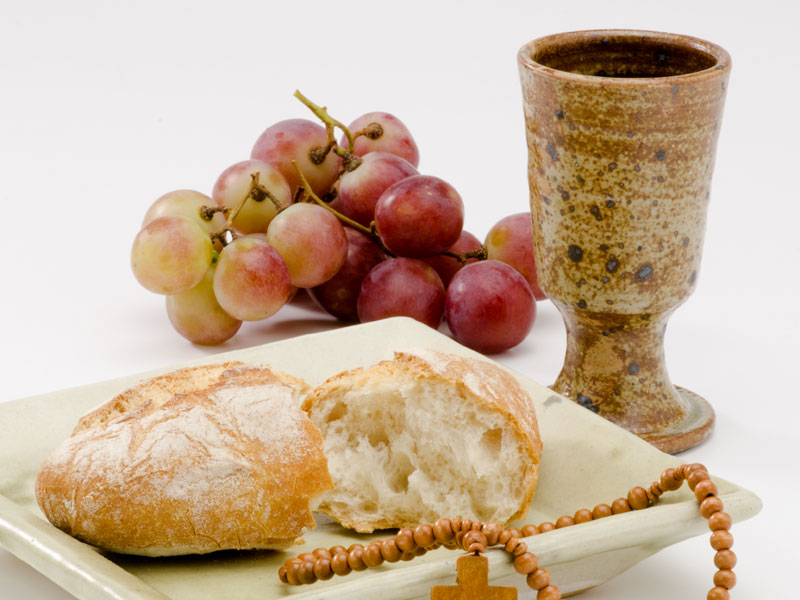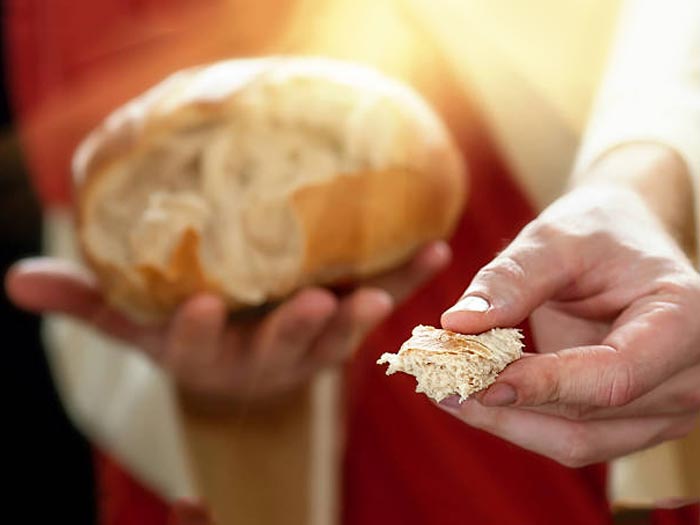Daily Readings Audio | Daily Meditation | August 16, 2021 – August 22, 2021
Monday of the Twentieth Week in Ordinary Time
Lectionary: 419

DAILY MEDITATION
by Daily reading & meditation website
Nghe đọc, Click vào đây
Opt. Mem. Saint Stephen of Hungary
In the first reading, the Israelites turn again and again to false idols while God continues to send judges to restore his people. In the Gospel, the rich young man asks how to gain eternal life, but goes away sad when Jesus tells him to sell his many possessions and come, follow him.
God calls us to abandon false gods who cannot satisfy, and draws us to true fulfillment in him. When we are tempted to turn to idols — things we find more important than God in our lives – and when we have
difficulties, we can trust that God never rests in his pursuit of his people. God sent judges to the Israelites and he sends his beloved Son to us. Jesus longs to satisfy our ever- hungry hearts, and he meets us in Scripture and the Sacraments. For those suffering violence in their countries, communities, or homes, may God’s peace overcome the turmoil and bring comfort and healing, let us pray to the Lord.
Reading I
The children of Israel offended the LORD by serving the Baals.
Abandoning the LORD, the God of their fathers,
who led them out of the land of Egypt,
they followed the other gods of the various nations around them,
and by their worship of these gods provoked the LORD.
Because they had thus abandoned him and served Baal and the Ashtaroth,
the anger of the LORD flared up against Israel,
and he delivered them over to plunderers who despoiled them.
He allowed them to fall into the power of their enemies round about
whom they were no longer able to withstand.
Whatever they undertook, the LORD turned into disaster for them,
as in his warning he had sworn he would do,
till they were in great distress.
Even when the LORD raised up judges to deliver them
from the power of their despoilers,
they did not listen to their judges,
but abandoned themselves to the worship of other gods.
They were quick to stray from the way their fathers had taken,
and did not follow their example of obedience
to the commandments of the LORD.
Whenever the LORD raised up judges for them, he would be with the judge
and save them from the power of their enemies
as long as the judge lived;
it was thus the LORD took pity on their distressful cries
of affliction under their oppressors.
But when the judge died,
they would relapse and do worse than their ancestors,
following other gods in service and worship,
relinquishing none of their evil practices or stubborn conduct.
Responsorial Psalm
R. (4a) Remember us, O Lord, as you favor your people.
They did not exterminate the peoples,
as the LORD had commanded them,
But mingled with the nations
and learned their works.
R. Remember us, O Lord, as you favor your people.
They served their idols,
which became a snare for them.
They sacrificed their sons
and their daughters to demons.
R. Remember us, O Lord, as you favor your people.
They became defiled by their works,
and wanton in their crimes.
And the LORD grew angry with his people,
and abhorred his inheritance.
R. Remember us, O Lord, as you favor your people.
Many times did he rescue them,
but they embittered him with their counsels.
Yet he had regard for their affliction
when he heard their cry.
R. Remember us, O Lord, as you favor your people.
Alleluia
R. Alleluia, alleluia.
Blessed are the poor in spirit;
for theirs is the Kingdom of heaven.
R. Alleluia, alleluia.
Gospel
A young man approached Jesus and said,
“Teacher, what good must I do to gain eternal life?”
He answered him, “Why do you ask me about the good?
There is only One who is good.
If you wish to enter into life, keep the commandments.”
He asked him, “Which ones?”
And Jesus replied, “You shall not kill;
you shall not commit adultery;
you shall not steal;
you shall not bear false witness;
honor your father and your mother;
and you shall love your neighbor as yourself.”
The young man said to him,
“All of these I have observed. What do I still lack?”
Jesus said to him, “If you wish to be perfect, go,
sell what you have and give to the poor,
and you will have treasure in heaven.
Then come, follow me.”
When the young man heard this statement, he went away sad,
for he had many possessions.
- Readings for the Optional Memorial of Saint Stephen of Hungary
Tuesday of the Twentieth Week in Ordinary Time
DAILY MEDITATION
by Daily reading & meditation website
Nghe đọc, Click vào đây
In the first reading, Gideon is visited by an angel and is sent by God to save Israel from their enemies. Gideon offers sacrifice in return. In the Gospel, Jesus warns his disciples about how difficult it is for the rich to enter the kingdom of God, but also promises that for God all things are possible.
Let us place our hope in Christ Jesus rather than in the things of this world. God wants us to be happy. However, we are mistaken if we hope our possessions or human relationships will satisfy the longing of our hearts. Only God is the Creator and satisfier of our soul. As he promises, everyone who has given up houses or brothers or sisters or father or mother or children or lands for the sake of my name will receive a hundred times more! For leaders in the Church, may the Holy Spirit work through them in spreading the Good News, let us pray to the Lord.
Lectionary: 420
Reading I
The angel of the LORD came and sat under the terebinth in Ophrah
that belonged to Joash the Abiezrite.
While his son Gideon was beating out wheat in the wine press
to save it from the Midianites,
the angel of the LORD appeared to him and said,
“The LORD is with you, O champion!”
Gideon said to him, “My Lord, if the LORD is with us,
why has all this happened to us?
Where are his wondrous deeds of which our fathers
told us when they said, ‘Did not the LORD bring us up from Egypt?’
For now the LORD has abandoned us
and has delivered us into the power of Midian.”
The LORD turned to him and said, “Go with the strength you have
and save Israel from the power of Midian.
It is I who send you.”
But Gideon answered him, “Please, my lord, how can I save Israel?
My family is the lowliest in Manasseh,
and I am the most insignificant in my father’s house.”
“I shall be with you,” the LORD said to him,
“and you will cut down Midian to the last man.”
Gideon answered him, “If I find favor with you,
give me a sign that you are speaking with me.
Do not depart from here, I pray you, until I come back to you
and bring out my offering and set it before you.”
He answered, “I will await your return.”
So Gideon went off and prepared a kid and a measure of flour
in the form of unleavened cakes.
Putting the meat in a basket and the broth in a pot,
he brought them out to him under the terebinth
and presented them.
The angel of God said to him, “Take the meat and unleavened cakes
and lay them on this rock; then pour out the broth.”
When he had done so,
the angel of the LORD stretched out the tip of the staff he held,
and touched the meat and unleavened cakes.
Thereupon a fire came up from the rock
that consumed the meat and unleavened cakes,
and the angel of the LORD disappeared from sight.
Gideon, now aware that it had been the angel of the LORD,
said, “Alas, Lord GOD,
that I have seen the angel of the LORD face to face!”
The LORD answered him,
“Be calm, do not fear. You shall not die.”
So Gideon built there an altar to the LORD
and called it Yahweh-shalom.
Responsorial Psalm
R. (see 9b) The Lord speaks of peace to his people.
I will hear what God proclaims;
the LORD–for he proclaims peace
To his people, and to his faithful ones,
and to those who put in him their hope.
R. The Lord speaks of peace to his people.
Kindness and truth shall meet;
justice and peace shall kiss.
Truth shall spring out of the earth,
and justice shall look down from heaven.
R. The Lord speaks of peace to his people.
The LORD himself will give his benefits;
our land shall yield its increase.
Justice shall walk before him,
and salvation, along the way of his steps.
R. The Lord speaks of peace to his people.
Alleluia
R. Alleluia, alleluia.
Jesus Christ became poor although he was rich
so that by his poverty you might become rich.
R. Alleluia, alleluia.
Gospel
Jesus said to his disciples:
“Amen, I say to you, it will be hard for one who is rich
to enter the Kingdom of heaven.
Again I say to you,
it is easier for a camel to pass through the eye of a needle
than for one who is rich to enter the Kingdom of God.”
When the disciples heard this, they were greatly astonished and said,
“Who then can be saved?”
Jesus looked at them and said,
“For men this is impossible,
but for God all things are possible.”
Then Peter said to him in reply,
“We have given up everything and followed you.
What will there be for us?”
Jesus said to them, “Amen, I say to you
that you who have followed me, in the new age,
when the Son of Man is seated on his throne of glory,
will yourselves sit on twelve thrones,
judging the twelve tribes of Israel.
And everyone who has given up houses or brothers or sisters
or father or mother or children or lands
for the sake of my name will receive a hundred times more,
and will inherit eternal life.
But many who are first will be last, and the last will be first.”
Wednesday of the Twentieth Week in Ordinary Time
Lectionary: 421
DAILY MEDITATION
by Daily reading & meditation website
Nghe đọc, Click vào đây
In the first reading, the citizens of Shechem and Beth-millo make Abimelech their king. In the Gospel, Jesus tells the parable of the generous landowner, who pays each a full day’s wage despite the number of hours worked.
God is always generous, offering salvation to whom he wills. The kingdom of God is a gift, offered out of God’s generosity. We are not the owners of this gift or the judges of who may be included. Exerting effort to compare ourselves to others or set forth expectations of God can lead to fruitless bitterness, because we see only the imperfections of human beings rather than the abundant mercy of God. For the ạnxious the sick, and those suffering from addictions of any kind, may God protect them and grant them full health of mind and body, let us pray to the Lord.
Reading I
All the citizens of Shechem and all Beth-millo came together
and proceeded to make Abimelech king
by the terebinth at the memorial pillar in Shechem.
When this was reported to him,
Jotham went to the top of Mount Gerizim and, standing there,
cried out to them in a loud voice:
“Hear me, citizens of Shechem, that God may then hear you!
Once the trees went to anoint a king over themselves.
So they said to the olive tree, ‘Reign over us.’
But the olive tree answered them, ‘Must I give up my rich oil,
whereby men and gods are honored,
and go to wave over the trees?’
Then the trees said to the fig tree, ‘Come; you reign over us!’
But the fig tree answered them,
‘Must I give up my sweetness and my good fruit,
and go to wave over the trees?’
Then the trees said to the vine, ‘Come you, and reign over us.’
But the vine answered them,
‘Must I give up my wine that cheers gods and men,
and go to wave over the trees?’
Then all the trees said to the buckthorn, ‘Come; you reign over us!’
But the buckthorn replied to the trees,
‘If you wish to anoint me king over you in good faith,
come and take refuge in my shadow.
Otherwise, let fire come from the buckthorn
and devour the cedars of Lebanon.’”
Responsorial Psalm
R. (2a) Lord, in your strength the king is glad.
O LORD, in your strength the king is glad;
in your victory how greatly he rejoices!
You have granted him his heart’s desire;
you refused not the wish of his lips.
R. Lord, in your strength the king is glad.
For you welcomed him with goodly blessings,
you placed on his head a crown of pure gold.
He asked life of you: you gave him
length of days forever and ever.
R. Lord, in your strength the king is glad.
Great is his glory in your victory;
majesty and splendor you conferred upon him.
You made him a blessing forever,
you gladdened him with the joy of your face.
R. Lord, in your strength the king is glad.
Alleluia
R. Alleluia, alleluia.
The word of God is living and effective,
able to discern the reflections and thoughts of the heart.
R. Alleluia, alleluia.
Gospel
Jesus told his disciples this parable:
“The Kingdom of heaven is like a landowner
who went out at dawn to hire laborers for his vineyard.
After agreeing with them for the usual daily wage,
he sent them into his vineyard.
Going out about nine o’clock,
he saw others standing idle in the marketplace,
and he said to them, ‘You too go into my vineyard,
and I will give you what is just.’
So they went off.
And he went out again around noon,
and around three o’clock, and did likewise.
Going out about five o’clock,
he found others standing around, and said to them,
‘Why do you stand here idle all day?’
They answered, ‘Because no one has hired us.’
He said to them, ‘You too go into my vineyard.’
When it was evening the owner of the vineyard said to his foreman,
‘Summon the laborers and give them their pay,
beginning with the last and ending with the first.’
When those who had started about five o’clock came,
each received the usual daily wage.
So when the first came, they thought that they would receive more,
but each of them also got the usual wage.
And on receiving it they grumbled against the landowner, saying,
‘These last ones worked only one hour,
and you have made them equal to us,
who bore the day’s burden and the heat.’
He said to one of them in reply,
‘My friend, I am not cheating you.
Did you not agree with me for the usual daily wage?
Take what is yours and go.
What if I wish to give this last one the same as you?
Or am I not free to do as I wish with my own money?
Are you envious because I am generous?’
Thus, the last will be first, and the first will be last.”
Thursday of the Twentieth Week in Ordinary Time

Lectionary: 422
DAILY MEDITATION
by Daily reading & meditation website
Nghe đọc, Click vào đây
Opt. Mem. Saint John Eudes, Priest
In the first reading, Jephthah makes a vow of a human sacrifice to gain a military victory. He ends up sacrificing his daughter. In the Gospel, Jesus tells a parable of a wedding feast, in which invitees ignore the king’s invitation, even killing his servants. The king does away with them and invites others; one of them is expelled for not wearing a wedding garment.
God desires the best for us, and wisdom helps us listen to him. Today we see how Jephthah’s rash vow gained him a military victory, but at the cost of his only child. The guests invited to the king’s wedding feast responded with indifference and even violence. If nothing else, these two examples show us that God’s desires for us are better than anything we can achieve on our own, and the wisdom to rely upon him and listen to him is a grace we need. For civil authorities, may God give them the grace to carry out their duties with integrity and wisdom, let us pray to the Lord.
Reading I
The Spirit of the LORD came upon Jephthah.
He passed through Gilead and Manasseh,
and through Mizpah-Gilead as well,
and from there he went on to the Ammonites.
Jephthah made a vow to the LORD.
“If you deliver the Ammonites into my power,” he said,
“whoever comes out of the doors of my house
to meet me when I return in triumph from the Ammonites
shall belong to the LORD.
I shall offer him up as a burnt offering.”
Jephthah then went on to the Ammonites to fight against them,
and the LORD delivered them into his power,
so that he inflicted a severe defeat on them,
from Aroer to the approach of Minnith (twenty cities in all)
and as far as Abel-keramim.
Thus were the Ammonites brought into subjection
by the children of Israel.
When Jephthah returned to his house in Mizpah,
it was his daughter who came forth,
playing the tambourines and dancing.
She was an only child: he had neither son nor daughter besides her.
When he saw her, he rent his garments and said,
“Alas, daughter, you have struck me down
and brought calamity upon me.
For I have made a vow to the LORD and I cannot retract.”
She replied, “Father, you have made a vow to the LORD.
Do with me as you have vowed,
because the LORD has wrought vengeance for you
on your enemies the Ammonites.”
Then she said to her father, “Let me have this favor.
Spare me for two months, that I may go off down the mountains
to mourn my virginity with my companions.”
“Go,” he replied, and sent her away for two months.
So she departed with her companions
and mourned her virginity on the mountains.
At the end of the two months she returned to her father,
who did to her as he had vowed.
Responsorial Psalm
R. (8a and 9a) Here I am, Lord; I come to do your will.
Blessed the man who makes the LORD his trust;
who turns not to idolatry
or to those who stray after falsehood.
R. Here I am, Lord; I come to do your will.
Sacrifice or oblation you wished not,
but ears open to obedience you gave me.
Burnt offerings or sin-offerings you sought not;
then said I, “Behold I come.”
R. Here I am, Lord; I come to do your will.
“In the written scroll it is prescribed for me.
To do your will, O my God, is my delight,
and your law is within my heart!”
R. Here I am, Lord; I come to do your will.
I announced your justice in the vast assembly;
I did not restrain my lips, as you, O LORD, know.
R. Here I am, Lord; I come to do your will.
Alleluia
R. Alleluia, alleluia.
If today you hear his voice,
harden not your hearts.
R. Alleluia, alleluia.
Gospel
Jesus again in reply spoke to the chief priests and the elders of the people in parables
saying, “The Kingdom of heaven may be likened to a king
who gave a wedding feast for his son.
He dispatched his servants to summon the invited guests to the feast,
but they refused to come.
A second time he sent other servants, saying,
‘Tell those invited: “Behold, I have prepared my banquet,
my calves and fattened cattle are killed,
and everything is ready; come to the feast.”’
Some ignored the invitation and went away,
one to his farm, another to his business.
The rest laid hold of his servants,
mistreated them, and killed them.
The king was enraged and sent his troops,
destroyed those murderers, and burned their city.
Then the king said to his servants, ‘The feast is ready,
but those who were invited were not worthy to come.
Go out, therefore, into the main roads
and invite to the feast whomever you find.’
The servants went out into the streets
and gathered all they found, bad and good alike,
and the hall was filled with guests.
But when the king came in to meet the guests
he saw a man there not dressed in a wedding garment.
He said to him, ‘My friend, how is it
that you came in here without a wedding garment?’
But he was reduced to silence.
Then the king said to his attendants, ‘Bind his hands and feet,
and cast him into the darkness outside,
where there will be wailing and grinding of teeth.’
Many are invited, but few are chosen.”
- Readings for the Optional Memorial of Saint John Eudes, priest
Readings for the Memorial of Saint Bernard, abbot and doctor of the Church
Nghe các bài đọc Anh Ngữ tại đây ⇒ LISTEN PODCAST
Memorial of Saint Bernard, Abbot and Doctor of the Church
Lectionary: 423
DAILY MEDITATION
by Daily reading & meditation website
Nghe đọc, Click vào đây
OBL. Mem. Saint Bernard, Abbot and Doctor of the Church
In the first reading, Ruth loses her husband, yet decides to go back to Judah with her mother-in-law, Naomi, instead of returning to her native land of Moab. In the Gospel, Jesus tells a scholar of the law that the greatest commandments are to love the Lord with all your heart, soul, and mind; and to love your neighbor as yourself.
Love of God and neighbor are forever bound together as one. “It is impossible to do one thing without the other.” This is a well-used phrase, and each one of us may have a particular example in mind when we hear it. Jesus says the same thing to us today, but with different words: The whole law and the prophets depend on these two commandments. We cannot truly love God if we do not love our neighbor; and we cannot truly love our neighbor if we do not love God. For all who have died marked with the sign of faith, may they rẹjoice forever with God in heaven, let us pray to the Lord.
Reading I
Once in the time of the judges there was a famine in the land;
so a man from Bethlehem of Judah
departed with his wife and two sons
to reside on the plateau of Moab.
Elimelech, the husband of Naomi, died,
and she was left with her two sons, who married Moabite women,
one named Orpah, the other Ruth.
When they had lived there about ten years,
both Mahlon and Chilion died also,
and the woman was left with neither her two sons nor her husband.
She then made ready to go back from the plateau of Moab
because word reached her there
that the LORD had visited his people and given them food.
Orpah kissed her mother-in-law good-bye, but Ruth stayed with her.
Naomi said, “See now!
Your sister-in-law has gone back to her people and her god.
Go back after your sister-in-law!”
But Ruth said, “Do not ask me to abandon or forsake you!
For wherever you go, I will go, wherever you lodge I will lodge,
your people shall be my people, and your God my God.”
Thus it was that Naomi returned
with the Moabite daughter-in-law, Ruth,
who accompanied her back from the plateau of Moab.
They arrived in Bethlehem at the beginning of the barley harvest.
Responsorial Psalm
R. (1b) Praise the Lord, my soul!
Blessed is he whose help is the God of Jacob,
whose hope is in the LORD, his God,
Who made heaven and earth,
the sea and all that is in them.
R. Praise the Lord, my soul!
The LORD keeps faith forever,
secures justice for the oppressed,
gives food to the hungry.
The LORD sets captives free.
R. Praise the Lord, my soul!
The LORD gives sight to the blind.
The LORD raises up those who were bowed down;
The LORD loves the just.
The LORD protects strangers.
R. Praise the Lord, my soul!
The fatherless and the widow he sustains,
but the way of the wicked he thwarts.
The LORD shall reign forever;
your God, O Zion, through all generations. Alleluia.
R. Praise the Lord, my soul!
Alleluia
R. Alleluia, alleluia.
Teach me your paths, my God,
guide me in your truth.
R. Alleluia, alleluia.
Gospel
When the Pharisees heard that Jesus had silenced the Sadducees,
they gathered together, and one of them,
a scholar of the law, tested him by asking,
“Teacher, which commandment in the law is the greatest?”
He said to him,
“You shall love the Lord, your God, with all your heart,
with all your soul, and with all your mind.
This is the greatest and the first commandment.
The second is like it:
You shall love your neighbor as yourself.
The whole law and the prophets depend on these two commandments.”
Memorial of Saint Pius X, Pope
Lectionary: 424
DAILY MEDITATION
by Daily reading & meditation website
Nghe đọc, Click vào đây
OBL. Mem. Saint Pius X, Pope
Ruth, a Moabite, gathers grain in the field of Boaz. Because of her good reputation, he invites her to join his household and eventually marries her. Their son, Obed, will be the grandfather of King David. In the Gospel, Jesus compares the example of the scribes and Pharisees with their teaching and says to follow their teaching, not their example.
Like Ruth, we are called by God to live humble lives of service. Ruth, a foreigner, and the great-grandmother of King David, is presented as an exemplary person. Welcomed into Boaz’s house, she becomes his wife and gives birth to a son named Obed, the Father of Jesse, the father of David. Through her humble life, salvation history continues to unfold toward the birth of Jesus. For Pope Francis, may the gifts of the Holy Spirit continue to inspire his ministry, let us pray to the Lord.
Reading I
Naomi had a prominent kinsman named Boaz,
of the clan of her husband Elimelech.
Ruth the Moabite said to Naomi,
“Let me go and glean ears of grain in the field
of anyone who will allow me that favor.”
Naomi said to her, “Go, my daughter,” and she went.
The field she entered to glean after the harvesters
happened to be the section belonging to Boaz
of the clan of Elimelech.
Boaz said to Ruth, “Listen, my daughter!
Do not go to glean in anyone else’s field;
you are not to leave here.
Stay here with my women servants.
Watch to see which field is to be harvested, and follow them;
I have commanded the young men to do you no harm.
When you are thirsty, you may go and drink from the vessels
the young men have filled.”
Casting herself prostrate upon the ground, Ruth said to him,
“Why should I, a foreigner, be favored with your notice?”
Boaz answered her:
“I have had a complete account of what you have done
for your mother-in-law after your husband’s death;
you have left your father and your mother and the land of your birth,
and have come to a people whom you did not know previously.”
Boaz took Ruth.
When they came together as man and wife,
the LORD enabled her to conceive and she bore a son.
Then the women said to Naomi,
“Blessed is the LORD who has not failed
to provide you today with an heir!
May he become famous in Israel!
He will be your comfort and the support of your old age,
for his mother is the daughter-in-law who loves you.
She is worth more to you than seven sons!”
Naomi took the child, placed him on her lap, and became his nurse.
And the neighbor women gave him his name,
at the news that a grandson had been born to Naomi.
They called him Obed.
He was the father of Jesse, the father of David.
Responsorial Psalm
R. (4) See how the Lord blesses those who fear him.
Blessed are you who fear the LORD,
who walk in his ways!
For you shall eat the fruit of your handiwork;
blessed shall you be, and favored.
R. See how the Lord blesses those who fear him.
You wife shall be like a fruitful vine
in the recesses of your home;
Your children like olive plants
around your table.
R. See how the Lord blesses those who fear him.
Behold, thus is the man blessed
who fears the LORD.
R. See how the Lord blesses those who fear him.
The LORD bless you from Zion:
may you see the prosperity of Jerusalem
all the days of your life.
R. See how the Lord blesses those who fear him.
Alleluia
R. Alleluia, alleluia.
You have but one Father in heaven;
you have but one master, the Christ.
R. Alleluia, alleluia.
Gospel
Jesus spoke to the crowds and to his disciples, saying,
“The scribes and the Pharisees
have taken their seat on the chair of Moses.
Therefore, do and observe all things whatsoever they tell you,
but do not follow their example.
For they preach but they do not practice.
They tie up heavy burdens hard to carry
and lay them on people’s shoulders,
but they will not lift a finger to move them.
All their works are performed to be seen.
They widen their phylacteries and lengthen their tassels.
They love places of honor at banquets, seats of honor in synagogues,
greetings in marketplaces, and the salutation ‘Rabbi.’
As for you, do not be called ‘Rabbi.’
You have but one teacher, and you are all brothers.
Call no one on earth your father;
you have but one Father in heaven.
Do not be called ‘Master’;
you have but one master, the Christ.
The greatest among you must be your servant.
Whoever exalts himself will be humbled;
but whoever humbles himself will be exalted.”
Twenty-first Sunday in Ordinary Time
Lectionary: 122
DAILY MEDITATION
by Daily reading & meditation website
Nghe đọc, Click vào đây
In the first reading, Joshua and the tribes of Israel state their fidelity to the Lord God. In his Letter to the Ephesians, Saint Paul draws a parallel between a spousal relationship and the radical love between Christ and the Church. In the Gospel, Jesus proclaims that his words are Spirit and life, after which only some of his followers continued as disciples. The immense love God has for his people prompts us to love in return.
The theme for today’s readings is fidelity between God and his people. How loyal are we to Jesus? Are we able tọ take Peter’s words as our own? Master, to whom shall we go? You have the words of eternal life. How well do we even know the words of Jesus? Let us recommit ourselves to deepening our knowledge and love of the Lord. For priests and religious, may the Spirit shield them and strengthen them for the building of God’s kingdom, let us pray to the Lord.
Reading I
Joshua gathered together all the tribes of Israel at Shechem,
summoning their elders, their leaders,
their judges, and their officers.
When they stood in ranks before God,
Joshua addressed all the people:
“If it does not please you to serve the LORD,
decide today whom you will serve,
the gods your fathers served beyond the River
or the gods of the Amorites in whose country you are now dwelling.
As for me and my household, we will serve the LORD.”
But the people answered,
“Far be it from us to forsake the LORD
for the service of other gods.
For it was the LORD, our God,
who brought us and our fathers up out of the land of Egypt,
out of a state of slavery.
He performed those great miracles before our very eyes
and protected us along our entire journey
and among the peoples through whom we passed.
Therefore we also will serve the LORD, for he is our God.”
Responsorial Psalm
R. (9a) Taste and see the goodness of the Lord.
I will bless the LORD at all times;
his praise shall be ever in my mouth.
Let my soul glory in the LORD;
the lowly will hear me and be glad.
R. Taste and see the goodness of the Lord.
The LORD has eyes for the just,
and ears for their cry.
The LORD confronts the evildoers,
to destroy remembrance of them from the earth.
R. Taste and see the goodness of the Lord.
When the just cry out, the LORD hears them,
and from all their distress he rescues them.
The LORD is close to the brokenhearted;
and those who are crushed in spirit he saves.
R. Taste and see the goodness of the Lord.
Many are the troubles of the just one,
but out of them all the LORD delivers him;
he watches over all his bones;
not one of them shall be broken.
R. Taste and see the goodness of the Lord.
Reading II
Brothers and sisters:
Be subordinate to one another out of reverence for Christ.
Wives should be subordinate to their husbands as to the Lord.
For the husband is head of his wife
just as Christ is head of the church,
he himself the savior of the body.
As the church is subordinate to Christ,
so wives should be subordinate to their husbands in everything.
Husbands, love your wives,
even as Christ loved the church
and handed himself over for her to sanctify her,
cleansing her by the bath of water with the word,
that he might present to himself the church in splendor,
without spot or wrinkle or any such thing,
that she might be holy and without blemish.
So also husbands should love their wives as their own bodies.
He who loves his wife loves himself.
For no one hates his own flesh
but rather nourishes and cherishes it,
even as Christ does the church,
because we are members of his body.
For this reason a man shall leave his father and his mother
and be joined to his wife,
and the two shall become one flesh.
This is a great mystery,
but I speak in reference to Christ and the church.
OR:
Brothers and sisters:
Live in love, as Christ loved us.
Husbands, love your wives,
even as Christ loved the church
and handed himself over for her to sanctify her,
cleansing her by the bath of water with the word,
that he might present to himself the church in splendor,
without spot or wrinkle or any such thing,
that she might be holy and without blemish.
So also husbands should love their wives as their own bodies.
He who loves his wife loves himself.
For no one hates his own flesh
but rather nourishes and cherishes it,
even as Christ does the church,
because we are members of his body.
For this reason a man shall leave his father and his mother
and be joined to his wife,
and the two shall become one flesh.
This is a great mystery,
but I speak in reference to Christ and the church.
Alleluia
R. Alleluia, alleluia.
Your words, Lord, are Spirit and life;
you have the words of everlasting life.
R. Alleluia, alleluia.
Gospel
Many of Jesus’ disciples who were listening said,
“This saying is hard; who can accept it?”
Since Jesus knew that his disciples were murmuring about this,
he said to them, “Does this shock you?
What if you were to see the Son of Man ascending
to where he was before?
It is the spirit that gives life,
while the flesh is of no avail.
The words I have spoken to you are Spirit and life.
But there are some of you who do not believe.”
Jesus knew from the beginning the ones who would not believe
and the one who would betray him.
And he said,
“For this reason I have told you that no one can come to me
unless it is granted him by my Father.”
As a result of this,
many of his disciples returned to their former way of life
and no longer accompanied him.
Jesus then said to the Twelve, “Do you also want to leave?”
Simon Peter answered him, “Master, to whom shall we go?
You have the words of eternal life.
We have come to believe
and are convinced that you are the Holy One of God.”


